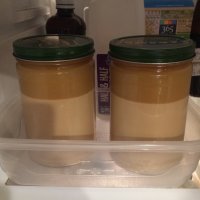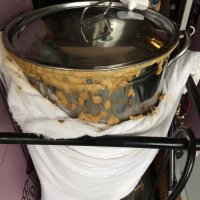João Machado
Well-Known Member
Hello, I used a extract jit as my first experience of beer making...
I have two questions:
1st- How much time until the fermentation begins? It passed 24h already since I putted everything in the fermenter bucket...
2nd- In the instruction says that the fermentation last for 4-7days...but I can't touch the beer fermented until 15 days from today...is it bad?...
I have two questions:
1st- How much time until the fermentation begins? It passed 24h already since I putted everything in the fermenter bucket...
2nd- In the instruction says that the fermentation last for 4-7days...but I can't touch the beer fermented until 15 days from today...is it bad?...




